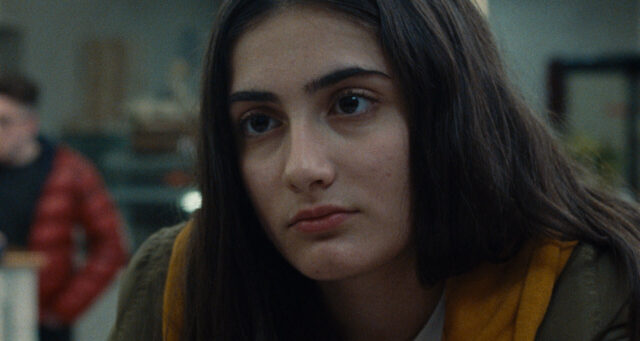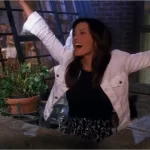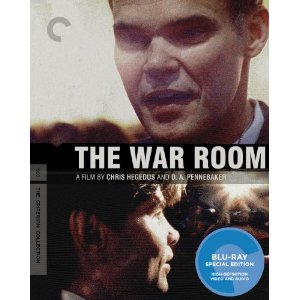A Chiara: Beasts of Southern Italy, by David Bax

With its lengthy opening sequence set at a jubilant celebration during which we are introduced to the characters and their dynamics, Jonas Carpignano‘s A Chiara brings to mind The Deer Hunter. Instead of a wedding, it’s a birthday party; despite the film’s title suggesting a toast to fifteen year old Chiara (Swamy Rotolo), the party’s actually in honor of her older sister, Giulia (Grecia Rotolo). No one may literally be going off to war after all this revelry but we will soon learn that the stakes are always high in the line of work the girls’ father (Claudio Rotolo) is in. And, when you’re a teenager like Chiara, everything feels like it’s life or death.
Carpignano and director of photography Tim Curtin employ a handheld, following style of cinematography, the kind that is often employed in festival-oriented filmmaking but is rarely done this well. In order to achieve the chaos this approach aims to produce, a lot of control and, more importantly, awareness–of the edges of the frame, of the various light sources and colors–need to be employed. Instead of the umpteenth post-Dardennes shaky cam movie, A Chiara has more in common with what the Safdies have achieved with Sean Price Williams (Good Time) and Darius Khondji (Uncut Gems). The marvelous editing by Affonso Gonçalves (Carol, Paterson) deserves applause as well for keeping the whole bustling, forward-hurling movie coherent.
Playing directly against this sense of barely controlled pandemonium is the understated, yet still often unsettling, score by Dan Romer and Benh Zeitlin (yes, that Benh Zeitlin). The low, droning music picks up on the way Chiara, a child who doesn’t think of herself as such, is often shunted off into another room, crucial information being discussed in muffled bursts that she can only partially make out.
Another way to describe the soundscape of A Chiara would be something along the lines of a nightmare. In fact, that may actually be what’s happening in the film’s more Lynch-inspired moments, like when Chiara appears to discover that a gaping hole of nothingness has appeared in her family’s kitchen floor.
It’s that exact push and pull between domestic mundanity and the terrifying unknown that defines so much of being Chiara’s age, thinking you’re more than ready for the world but not really knowing anything about it. The facts of the plot here, in which Chiara comes to realize that her loving father is a member of an organized crime family, may not be universally relatable (unless you’re A.J. Soprano) but the feeling that everything that’s going wrong is happening to you specifically will probably be familiar to anyone who remembers being a teenager. In many ways, A Chiara follows a recognizable coming-of-age outline. But, like actual coming of age, it’s often quite frightening.



























